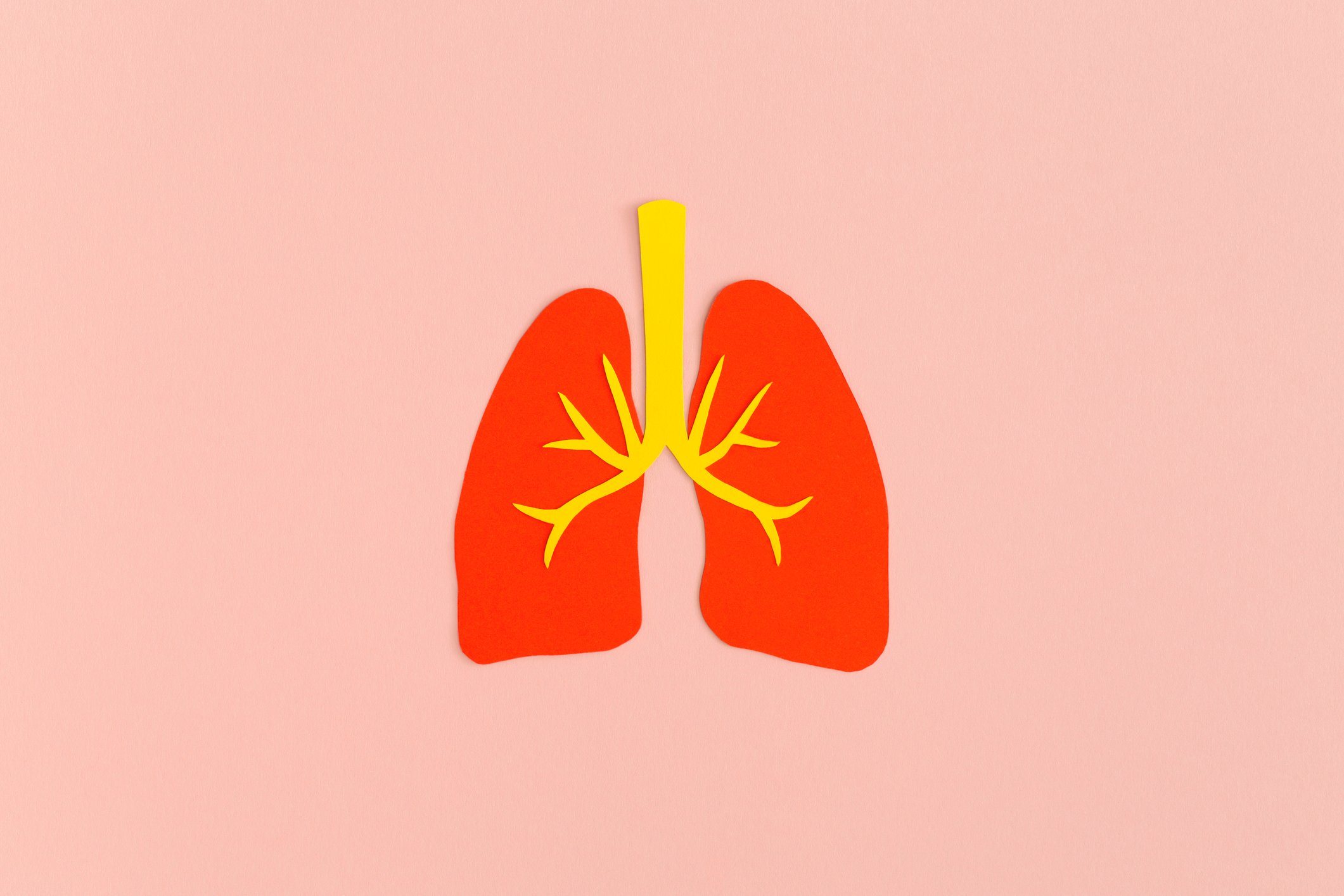预约演示
更新于:2025-05-07

Zhejiang Hospital
更新于:2025-05-07
概览
关联
104
项与 浙江医院 相关的临床试验ITMCTR2025000829
Effects of Vibratory Abdominal Massage on Symptom and Functional Scores Vertigo Symptom Scores and Plasma Endothelin Levels in Patients with Cervical Spondylosis of Vertebral Artery Type (CS-VAT)
开始日期2025-06-01 |
申办/合作机构 |
NCT06890260
A Clinical Randomized Controlled Study of Electroacupuncture Combined With Microneedle Knife in the Treatment of Moderate to Severe Allergic Rhinitis
Based on the inclusion and exclusion criteria, patients with allergic rhinitis who meet the requirements are selected as trial subjects, and the efficacy is clarified in a randomized controlled design trial. We will Use the total nasal symptom score as the primary outcome index, serum chemokine, intercellular adhesion molecule-1, eosinophil cationic protein, total non-nasal symptom score, and rhinitis-related quality of life scale as secondary outcome indexes, and oral cetirizine hydrochloride tablets and nasal budesonide spray as the control group, the efficacy of the subjects in the electroacupuncture combined with microneedle knife group and the drug group will be observed respectively before treatment, after 2 weeks of treatment, after 4 weeks, 1 month follow-up after the end of treatment, and 3 months follow-up after the end of treatment. 4 weeks later, 1 month follow-up after the end of treatment and 3 months follow-up after the end of treatment.
开始日期2025-04-11 |
申办/合作机构 |
ChiCTR2500099796
A clinical randomized controlled study of electroacupuncture combined with microneedle knife in the treatment of moderate to severe allergic rhinitis
开始日期2025-04-11 |
申办/合作机构 |
100 项与 浙江医院 相关的临床结果
登录后查看更多信息
0 项与 浙江医院 相关的专利(医药)
登录后查看更多信息
2,096
项与 浙江医院 相关的文献(医药)2025-12-31·Drug Delivery
Ionic liquid-iontophoresis mediates transdermal delivery of sparingly soluble drugs
Article
作者: Gao, Wenyan ; Yu, Wenying ; Tang, Zhan ; Zhang, Qi ; Xing, Wenmin ; Wang, Qiao
2025-12-31·Annals of Medicine
Permeability of the blood-CSF barrier in MOGAD: clinical correlation based on the 2023 diagnostic criteria
Article
作者: Du, Bing-Qing ; Lai, Qi-Lun ; Fang, Wei ; Cai, Meng-Ting ; Shen, Chun-Hong ; Zhang, Yin-Xi ; Xu, Yong-Feng ; Ding, Mei-Ping
2025-12-31·Pharmaceutical Biology
Mechanism of action of genistein on breast cancer and differential effects of different age stages
Review
作者: Pei, Xiujun ; Gong, Weilun ; Ma, Bo ; Wang, Wenjie ; Xiang, Zhebin
10
项与 浙江医院 相关的新闻(医药)2025-02-16
·梅斯医学
2025年1月7日,中日友好医院曹彬团队在国际医学顶级期刊《Nature Medicine》(IF:58.7)上发表了最新研究成果“Single-Dose Suraxavir Marboxil for Acute Uncomplicated Influenza in Adults and Adolescents: A Multi-center, Randomized, Double-blind, Placebo-controlled Phase 3 trial”。本研究通过随机双盲对照试验的设计证明了玛舒拉沙韦在改善流感症状和清除病毒的有效性和安全性,同时发现耐药率低是其重要特点。这为抗流感药物的选择提供了更多方案。
1
研究背景
流感病毒不仅每年在全球呈现季节性流感,而且还曾导致多次大流行,对人类健康构成严重威胁。1999-2015年的数据显示,流感每年导致全球约29万至65万例呼吸道疾病相关死亡。美国CDC的调查显示全人群8%的人口每年发生流感感染。中国2010-2015年流感季的流行病学数据显示,平均每年因流感导致约8.8万例超额死亡。全球新冠大流行结束后,流感再度活跃并仍呈现季节性流行,给广大民众,尤其是高危人群带来了严重危害。
流感病毒RNA聚合酶作为药物研发的新靶点引起高度关注,玛舒拉沙韦(GP681)作为一种新型PA抑制剂,在体外对甲型和乙型流感表现出抗病毒活性,在前期研究中显示出良好的耐受性和半衰期长的药代动力学特性。同时,耐药性作为影响抗病毒药物疗效的重要问题,如何克服耐药性,降低耐药率是目前新型药物的重要研究方向之一,在玛舒拉沙韦的相关动物研究中可发现,靶器官肺的药物浓度明显高于血液中的药物浓度,提示该药物可能克服该靶点耐药率高的问题。随后,研究团队在进一步的III期临床试验中,一方面证明玛舒拉沙韦治疗急性单纯性流感的安全性和有效性;另一方面采用2:1随机增加玛舒拉沙韦组的样本量,对合格样本进行病毒测序和体外培养确证耐药率低的猜想。
2
研究设计
本研究在我国多家中心开展,采用分层随机、双盲、安慰剂平行对照设计,纳入80%的成年人和20%的儿童青少年,按2:1比例分配到玛舒拉沙韦组和安慰剂组。
纳入标准
受试者年龄在 5-65 岁之间,发烧腋温大于等于 37.3 摄氏度同时快速抗原或核酸检测结果呈阳性。受试者在症状出现 48 小时内出现至少一种全身性流感症状和一种呼吸道流感症状,且症状至少为中度严重程度。
排除标准
需要住院治疗的流感病毒感染者,筛查前曾使用抗病毒药物,合并细菌和其他感染。
图1.研究设计
3
人群分布
从2022年7月28日至2023年10月31日,591名患者接受了随机化,588名患者被纳入意向性治疗(ITT)人群,而主要分析人群ITT 感染人群纳入 527 名患者(352 人接受玛舒拉沙韦 40 mg治疗,175 人接受安慰剂治疗),甲型流感是主要病毒类型(98.5%)。
4
临床疗效
在 ITT 感染人群中,玛舒拉沙韦组的流感症状缓解时间中位数显著短于安慰剂组(42.0 小时 vs. 63.0 小时;HR=1.85,95%CI=1.33-2.57)(图 2),中位差异为 20.3 小时。在敏感性分析中主要终点结果保持稳定,并在亚组分析中观察到了玛舒拉沙韦的类似结果。此外,与服用安慰剂的患者相比,服用玛舒拉沙韦组的患者退热的中位时间显著缩短(19.7 小时vs. 28.3 小时)。
图2. 玛舒拉沙韦组和安慰剂组的流感症状缓解时间曲线
5
抗病毒疗效
在病毒清除上,与安慰剂相比,玛舒拉沙韦在用药后第 1 天的病毒载量从基线下降的速度更快,玛舒拉沙韦组病毒载量的平均变化为-2.2 ± 1.3 log10 copies/ml,安慰剂组为 -1.3 ± 1.7 log10 copies/ml(图 3)。
图3. 不同访视点玛舒拉沙韦组和安慰剂组的病毒载量变化
6
安全性好
研究中没有发生导致死亡的严重不良事件。玛舒拉沙韦组和安慰剂组的不良事件的发生率(43.8% vs. 40.4%)以及药物相关的不良事件的发生率(28.4% vs. 23.3%)类似,大多数不良事件为轻度至中度,无需对症治疗即可缓解。以上说明该药物安全性良好。
7
耐药率低
玛舒拉沙韦组仅有 3 名参与者在用药第 5 天时出现耐药相关的I38T 氨基酸替换,H1N1pdm 和 H3N2 亚型的发生率分别为 0.7%和 0.9%,乙型流感组和安慰剂组未发生突变。耐药表型结果与测序结果一致。证实了其可克服耐药性,实现较低的耐药率。
8
总结
玛舒拉沙韦片可有效缩短流感症状缓解时间并快速清除病毒,具有良好的安全性和耐受性,且耐药率低。
原文链接
https://www-nature-com.libproxy1.nus.edu.sg/articles/s41591-024-03419-3
感谢浙江医院、南阳医学高等专科学校第一附属医院、北京大学第三医院、潍坊市第二人民医院、嘉兴市第一医院、安阳市人民医院、蚌埠医学院第一附属医院、菏泽市立医院、聊城市人民医院、浙江大学医学院附属邵逸夫医院、南京医科大学第二附属医院、江西省人民医院、浙江省人民医院、北京清华长庚医院、北京大学人民医院、赣南医学院第一附属医院、南昌大学第一附属医院、首都医科大学附属北京潞河医院、信阳市中心医院、平煤神马医疗集团总医院、洛阳市中心医院、大连市中心医院、吉林大学第二医院、河北医科大学第三医院、淄博市市立医院、赣州市人民医院、长沙市第三医院、长沙市第一医院、深圳市人民医院、广州市第一人民医院、贵州省人民医院、浙江省立同德医院、衢州市人民医院、宣城市人民医院、池州市人民医院、温岭市第一人民医院、中国科学院大学宁波华美医院、宜兴市人民医院、国药东风总医院、绵阳市中心医院、四川大学华西医院、天津医科大学第二医院、商丘市第一人民医院、驻马店市中心医院、树兰(杭州)医院招募患者时的重要贡献。感谢每一位参与研究的受试者。
感谢北京大学临床研究所的闫小妍和于永沛在统计分析的指导,感谢中国疾病预防控制中心病毒预防控制所的王大燕和李梓在病毒检测和分析的指导。
中日友好医院呼吸与危重症医学科曹彬教授为本研究论文通讯作者。中日友好医院呼吸与危重症医学科王业明医师、浙江医院感染科王洪教授、南阳医学高等专科学校第一附属医院呼吸与危重症医学科张玉教授、中日友好医院感染科马安林教授、首都医科大学博士生刘东为本研究共同第一作者。
通讯作者:曹彬
主任医师/教授,博士生导师;中日友好医院副院长,呼吸与危重症医学科主任,国家呼吸医学中心副主任,中国医学科学院呼吸病学研究院副院长。教育部长江学者特聘教授、国家杰出青年科学基金获得者、国家科技创新领军人才、首届新基石研究员。受邀担任WHO新冠蓝图计划专家成员,WHO流感临床研究报告组长。现任中华医学会呼吸病学分会候任主任委员、中国医学科学院学术咨询委员会学部委员、中国抗癌协会第一届肿瘤呼吸病学专业委员会主任委员、国际流感和呼吸道病毒感染学会(ISIRV)抗病毒小组(AVG)委员、CMJ-PCCM副主编。
共同第一作者:王业明
医学博士,中日友好医院呼吸与危重症医学科专培医师,国家呼吸医学中心青委会主任委员,呼吸中心研究型病房副主任,首都医科大学博士研究生导师;入选国家高层次人才特殊支持计划青年项目、北京市科技新星;主持国自然和科技部等课题10项;以第一或通讯(含共同)发表SCI论著30余篇,NEJM(2篇)、Lancet (4篇), AJRCCM,CHEST等总他引超过2万次,入选《全球前2%顶尖科学家榜单》;荣获全国卫生健康系统新冠肺炎疫情防控工作先进个人、第三届全国创新争先奖牌(团体)等奖项。
共同第一作者:王洪
浙江大学医学院附属浙江医院感染科主任,浙江省医学会感染病委员会委员。浙江省中西医结合学会肝病委员会委员。浙江数理学会感染委员会常委。
共同第一作者:张玉
河南省南阳医学高等专科学校第一附属医院感染性疾病科主任,主任医师,副教授,河南省感染病学会常委,肝病康复学会常委,结核分会委员。
共同第一作者:马安林
中日友好医院感染疾病科主任,主任医师,硕士生导师,卫生部突发公共卫生事件专家组成员,北京市肝病学会委员,北京市中西医结合感染疾病学会常委,长期从事慢性肝脏疾病和感染性疾病的诊疗工作,对自身免疫性肝病和自身免疫性胆管炎等有独到的研究和见解,结合疑难肝脏疾病临床和病理特点,能做出正确的诊断。熟练掌握肝脓肿、肝囊肿、小肝癌的介入治疗。发表学术论文20篇,主持和参加国家级课题10余项,获得北京市科技进步三等奖一项。
共同第一作者:刘东
首都医科大学博士研究生,师从曹彬教授,第一/共同第一作者发表SCI论文5篇。
免责声明:本文仅作最新前沿信息交流之目的,文中所有观点不代表梅斯医学立场,亦不代表梅斯医学支持或反对文中观点。如需获得治疗方案指导,请前往正规医院就诊!
临床研究疫苗
2025-02-10
German drugmaker Boehringer Ingelheim didn’t share any data behind the top-line result, instead promising that the efficacy and safety findings would be unveiled in the second quarter.\n Boehringer Ingelheim has cemented the potential of its idiopathic pulmonary fibrosis (IPF) drug with a second phase 3 win in a related lung disease leading the drugmaker to expand the indications it will seek FDA approval for.The FIBRONEER-ILD trial saw 1,178 patients with progressive pulmonary fibrosis (PPF) receive either a 9 mg or 18 mg dose of the PDE4B inhibitor nerandomilast or placebo twice a day for 52 weeks. The study hit its primary endpoint of demonstrating an absolute change from baseline in forced vital capacity—a measure of the volume of air that a patient can breathe out—Boehringer said in a Feb. 10 release.The German drugmaker didn’t share any data behind the top-line result, instead promising that the efficacy and safety findings would be unveiled in the second quarter.“Initial data readouts of the FIBRONEER trials support a generally consistent safety and tolerability profile when compared to the phase 2 IPF study, with overall adverse events comparable to those seen in the placebo group,” the company said.Armed with the latest results, Boehringer said it will request that FDA and global regulators approve nerandomilast as a treatment for PPF, a type of interstitial lung disease. The company has already said it will seek approval for nerandomilast in IPF after proclaiming a win in a phase 3 trial for that lung disease in September 2024. Again, the company opted to hold back any concrete data from that trial for later in this year.When it comes to managing IPF, physicians already have Boehringer’s Ofev and Roche’s Esbriet. However, those drugs only slow the progression of fibrosis, while attempts to produce molecules that further slow, or ideally stop, progression have failed to prove their worth.By targeting phosphodiesterase 4B (PDE4B), nerandomilast is meant to have a mechanistic advantage over the incumbent products. Targeting PDE4 drives anti-inflammatory and antifibrotic effects, but attempts to develop oral inhibitors of the enzyme in respiratory diseases have been hindered by class-related systemic adverse events such as diarrhea and headaches.“The positive FIBRONEER-ILD topline result shows the potential of nerandomilast in progressive pulmonary fibrosis,” Shashank Deshpande, Head of Human Pharma at Boehringer, said in the release. “The hope is that the safety and tolerability profile we are initially seeing could potentially help to reduce treatment challenges.”

临床3期临床2期临床结果
2025-01-23
·动脉网
在科技飞速发展的当下,人工智能技术已成为推动各领域变革的重要力量。而作为中华民族传统瑰宝的中药,承载着数千年的智慧与实践经验。当古老的中药遇上前沿的人工智能,一场前所未有的创新变革正在悄然酝酿。两者的深度融合,将如何重塑未来医药领域的格局,无疑成为了当下备受瞩目的焦点话题。
2024年12月底,以“AI与人类健康”为主题的2024(第六届)健康大会在杭州举行,寿仙谷副董事长、寿仙谷植物药研究院院长李振皓博士现场发布了应用AI与大数据技术开发的新品“仙芝3号”去壁灵芝孢子粉。据介绍,此次新品仙芝3号是“仙芝2号”去壁灵芝孢子粉的升级款,应用AI和大数据技术,通过品种升级、栽培技术升级、去壁智造技术升级,使产品吸收更好,安全性更高,功效更确切,适用人群更广泛。
会后,动脉网与李振皓博士围绕新品仙芝3号及AI助力中药现代化的相关话题进行了简短的对话。以下为其主题演讲及专访内容整理。
01
两次产品突破性迭代,持续领衔灵芝行业创新
中国传统医学文化中,灵芝被认为具有强身健体、益寿美颜的作用。在现代医学研究中,灵芝的这些功效也得到了一定程度的科学验证和进一步的拓展。
灵芝孢子粉作为灵芝在生长成熟时释放出来的种子,一直被国人认为是“仙草”灵芝的“精华所在”。研究发现,灵芝孢子含有的灵芝多糖具有促进血液微循环、降低血压的作用,可以预防心血管疾病,以及提高机体免疫力,杀死或抑制癌细胞。另一活性成分灵芝三萜不仅是一种有效的癌细胞凋亡诱导剂,还具有镇痛、镇静、解毒、保肝和健胃等作用。
不过,每一个灵芝孢子只有4-6个微米,是活体生物体,具有双壁结构,外被坚硬的几丁质纤维素所包围,导致灵芝孢子的营养成分被锁在耐酸碱的双层壁壳里,不溶于水,人体很难充分吸收。
市面上,多数企业售卖的灵芝孢子粉均要通过破壁技术,释放出里面的营养物质。但破壁技术虽然释放了部分有效成分,其孢子壁壳仍占比60%以上,有效成分纯度较低,功效相对较弱。
基于此,寿仙谷在8年前进行了其第一次产品突破性迭代——利用其自有专利第三代去壁技术,在破壁灵芝孢子粉基础上,去除灵芝孢子粉壁壳,使得多糖、三萜等有效成分含量提升十倍以上。换句话来说,同样含量下,1g去壁灵芝孢子粉等于10g破壁灵芝孢子粉,且去壁后的灵芝孢子粉更易被人体吸收。
如今,寿仙谷对这款拳头产品进行了再次升级——覆盖灵芝袍子的选、育和产,并通过高质量循证证据证明了其安全性和有效性。
具体而言,在育种方面,寿仙谷通过空间组学技术,精准定位了与多糖、三萜等有效成分相关的基因,并通过“高内涵模型”(High-Content Model)等技术对其免疫活性进行评估,而这也就成就了全国第一个以免疫活性为导向的灵芝新品种。
在栽培技术方面,寿仙谷基于数字大棚积累的农业大数据,通过关联分析生态环境因子(如温度、光照)与灵芝产量和品质之间的关系,建立农业大模型。利用反馈控制,确保灵芝全生长周期处于最佳环境,从而保障产量并提升品质。通过三年的持续比较,发现数字大棚里的中药产量可以比普通大棚的产量提高50%到80%。
在去壁智造技术方面,结合“质量源于设计”(QbD)和“精益生产”理念,提升生产效率并降低成本,并进一步提高灵芝孢子粉中多糖和三萜等药效成分的含量。通过比较研究去壁灵芝孢子粉(仙芝3号)和破壁灵芝孢子粉的体内ADME过程,发现核心成分灵芝三萜的体内吸收提高4-50倍,大幅提升了产品吸收。
经过上述技术升级的产品,在国家浙江新药安全评价研究中心开展的系统毒理学研究中表现出极高安全性,未见有害作用剂量(NOAEL)折合成人每天摄入40克以上。
02
开展循证医学研究,推动中药现代化和国际化发展
在传统中医药的发展历程中,一直面临着药效成分不明确、作用机制不清晰的问题,这不仅限制了中药的现代化进程,也成为了其国际化道路上的重大阻碍。
基于此背景下,在作用机制方面,寿仙谷对灵芝孢子粉的药效作用及机制进行了系统的研究,已经形成相对完整的免疫调节作用证据链,从体液和细胞免疫,到对免疫检查点的抑制作用,再到对T细胞形成的调控,研究成果发表在Nature Cancer等高质量期刊上。
在循证医学发展方面,寿仙谷与浙江大学医学院附属第一医院、第二医院、浙江医院等国内多家医院合作,系统开展了循证医学研究。研究发现,灵芝孢子粉对肿瘤、睡眠紊乱、亚健康以及免疫佐剂方面都有显著作用,获得了高质量的循证证据。这些研究不仅提升了灵芝孢子粉的科学价值,也为其中药现代化和国际化提供了有力支持。
在AI技术的推动下,灵芝孢子粉的研究效率得到了显著提升。例如,通过AI技术挖掘与多糖、三萜等药效物质相关的功能基因,显著降低了优良品种选育的工作量。此外,结合网络药理学以及构效关系研究,研究人员能够更快地识别出中药的药效物质,将原本如同“大海捞针”的中药药效研究,转变为更加精准的“碗里捞针”,显著提高了研究的准确性。
当然,寿仙谷也这正在积极推动国际化研究,正在与美国梅奥医学中心(Mayo Clinic)共同开展中药药效物质筛选和临床等研究。这一合作不仅提升了灵芝孢子粉的研究水平,还为中药的国际化和现代化提供了有力支持。
李振皓博士认为,有了AI技术,可以助力中药药效成分和作用机制的研究,质量控制水平也会得到明显提升,有利于中药的现代化、产业化和国际化。在寿仙谷牵头下,浙江省已发布5个中药ISO国际标准,其中第一个和第二个就是灵芝和铁皮石斛的国际标准,也推动了浙产道地药材的国际化发展。
“中药国际化确实面临诸多挑战,尽管浙江等地的中药企业以及国内众多中药企业在海外布局取得了一定进展,但总体上,由于中西医在医学体系上存在差异,中药要获得国际认可还需从多方面入手。这包括建立符合国际标准的质量控制体系,提升产品的质量,确保药效的稳定性。同时,通过科学研究,深入探究中药的作用机制和药效物质,用现代科学语言阐述中医药理论,从而增强国际社会对中药的接受度。此外,加强知识产权保护,推动中药在国际医疗体系中的地位提升,也是实现中药国际化的重要途径。”李振皓博士说。
*封面图片来源:123rf
如果您想对接文章中提到的项目,或您的项目想被动脉网报道,或者发布融资新闻,请与我们联系;也可加入动脉网行业社群,结交更多志同道合的好友。
近
期
推
荐
声明:动脉网所刊载内容之知识产权为动脉网及相关权利人专属所有或持有。未经许可,禁止进行转载、摘编、复制及建立镜像等任何使用。
动脉网,未来医疗服务平台
100 项与 浙江医院 相关的药物交易
登录后查看更多信息
100 项与 浙江医院 相关的转化医学
登录后查看更多信息
组织架构
使用我们的机构树数据加速您的研究。
登录
或

管线布局
2025年08月26日管线快照
无数据报导
登录后保持更新
药物交易
使用我们的药物交易数据加速您的研究。
登录
或

转化医学
使用我们的转化医学数据加速您的研究。
登录
或

营收
使用 Synapse 探索超过 36 万个组织的财务状况。
登录
或

科研基金(NIH)
访问超过 200 万项资助和基金信息,以提升您的研究之旅。
登录
或

投资
深入了解从初创企业到成熟企业的最新公司投资动态。
登录
或

融资
发掘融资趋势以验证和推进您的投资机会。
登录
或

Eureka LS:
全新生物医药AI Agent 覆盖科研全链路,让突破性发现快人一步
立即开始免费试用!
智慧芽新药情报库是智慧芽专为生命科学人士构建的基于AI的创新药情报平台,助您全方位提升您的研发与决策效率。
立即开始数据试用!
智慧芽新药库数据也通过智慧芽数据服务平台,以API或者数据包形式对外开放,助您更加充分利用智慧芽新药情报信息。
生物序列数据库
生物药研发创新
免费使用
化学结构数据库
小分子化药研发创新
免费使用